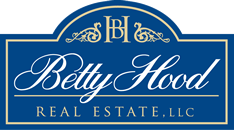Following two weeks of declines, mortgage rates edged up, and economists say that consumers should expect further increases over the coming weeks.
The Federal Reserve will likely raise its short-term interest rates at its meeting next week. While the Fed’s benchmark rates do not have a direct effect on mortgage rates, they do often influence them and likely will lead to an increase, the National Association of REALTORS® notes on its Economists’ Outlook blog.
But even though mortgage rates are rising, consumers should bear in mind that rates remain near historic lows. For comparison, in 1982 when inflation was rising roughly at the same pace as it is now, mortgage rates were 16% on average, Nadia Evanelou, senior economist and director of forecasting at the National Association of REALTORS®, writs on the association’s blog. This week, the 30-year fixed-rate mortgage averaged 3.85%, as a comparison.
The latest increase in mortgage rates comes as Treasury yields increase, notes Sam Khater, Freddie Mac’s chief economist. “Over the long-term we expect rates to continue to rise as inflation broadens and shortages increasingly impact many segments of the economy. However, uncertainty about the war in Ukraine is driving rate volatility that likely will continue in the short-term.”
Freddie Mac reports the following national averages with mortgage rates for the week ending March 10:
- 30-year fixed-rate mortgages: averaged 3.85%, with an average of 0.8 points, rising from last week’s 3.76% average. Last year at this time, 30-year rates averaged 3.05%.
- 15-year fixed-rate mortgages: averaged 3.09%, with an average of 0.8 points, rising from last week’s 3.01% average. A year ago, 15-year rates averaged 2.38%.
- 5-year hybrid adjustable-rate mortgages: averaged 2.97%, with an average of 0.3 points, rising from last week’s 2.91% average. A year ago, 5-year ARMs averaged 2.77%.
Freddie Mac reports average commitment rates along with points to better reflect the total upfront costs of obtaining the mortgage.

